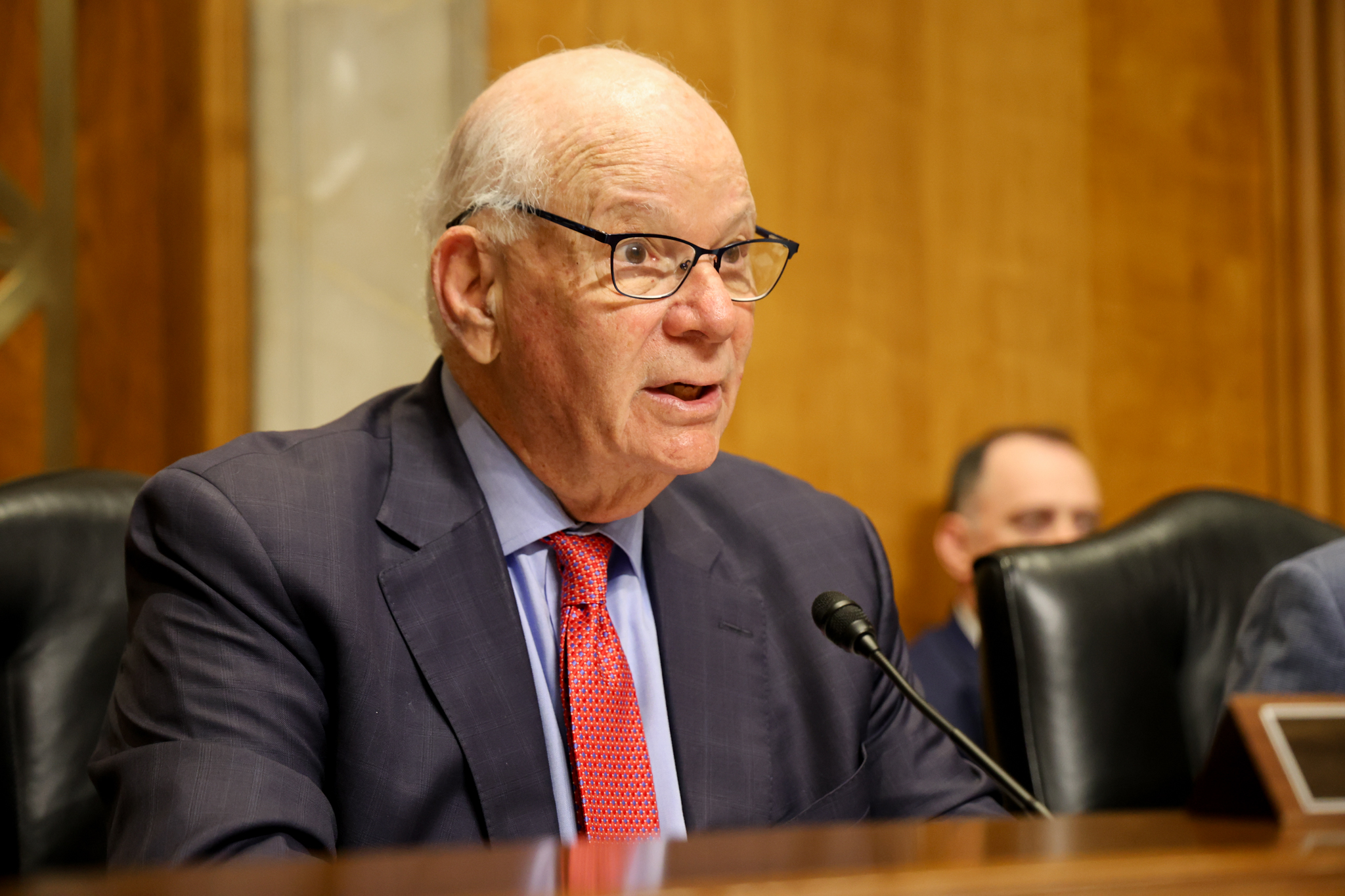Chair Cardin Opening Remarks at Hearing on Arms Control and Deterrence
WASHINGTON – Today, U.S. Senator Ben Cardin (D-Md.), Chair of the Senate Foreign Relations Committee, delivered an opening statement at the full Committee hearing, “The Future of Arms Control and Deterrence.” In his remarks, Chair Cardin framed arms control as continuing to be a strategic U.S. foreign policy objective, stressed the importance of our always pursuing strategic stability conversations with our adversaries, and underscored the necessity of our working closely with allies and partners to bolster our collective deterrence.
“At the height of the Cold War arms race, one mistake or miscalculation could lead to nuclear annihilation. But in the decades that followed, carefully negotiated arms control agreements enabled us to live in a much safer world,” said Chair Cardin. “I believe we must do everything in our power to avoid getting into another nuclear arms race.”

WATCH THE CHAIR’S OPENING REMARKS HERE
More information about the hearing is available here.
A copy of the Chair’s remarks, as delivered, have been provided below.
The Cuban Missile Crisis was—as one Kennedy aide said—“the most dangerous moment in human history.” At the height of the Cold War arms race, one mistake or miscalculation could lead to nuclear annihilation. But in the decades that followed, carefully negotiated arms control agreements enabled us to live in a much safer world.
In recent years, however, there has been a serious reason for concern. Russia has backed away from arms control agreements. There are no more inspections. Our only remaining nuclear weapons treaty, New START, expires in 2026. And Russia is reportedly developing a nuclear capable anti-satellite weapon, which would violate the 1967 Outer Space Treaty. Meanwhile, China has been rapidly building up its nuclear arsenal—something we should be talking about with them at the highest level. So this hearing comes at a critical time.
Secretary Jenkins, I want to thank you for appearing before us today. I believe we must do everything in our power to avoid getting into another nuclear arms race. I’m pleased with how the Biden Administration has been balancing our needs. They have kept the door open to negotiations with our adversaries while bolstering deterrence by working with our allies. They are building up an international consensus to maintain a peaceful outer space, and they are modernizing our forces.
On land, at sea and through the air—we need to replace and update our nuclear systems. Given the limits on nuclear material—that means retrofitting our warheads. That is why the Department of Energy’s project to restore the production of plutonium pits for the warheads is so important. While these modernization efforts are the key to maintaining our deterrence, we must not give up on arms control. It is true that Russia has backed away from our agreements, but they have not gone over the limits set by our treaties. I have seen the projections saying China could have as many as 1,000 nuclear warheads by 2030. But we should not be basing our decisions on assumptions about 2030 that may never happen. Those projections are what might happen if the United States sits around and doesn’t do anything about it. But we should not be passive. That is why our diplomatic efforts are so important.
We must communicate to the leadership of Beijing the dangers of a world where the United States and China are locked in an arms race. Because while we have the capability to counter their nuclear buildup. We want to avoid an Indo-Pacific with nuclear weapons posture that looks like Cold War in Europe.
One of the most promising developments I’ve seen is the Biden Administration’s cooperation with our allies in Europe and the Indo-Pacific. More closely linked alliances like AUKUS and the Washington Declaration with South Korea, are crucial in our effort to counter our adversaries. At the same time, I think we need to clearly communicate that we are ready to sit down and talk. We are ready to talk with Beijing. We are ready to talk with Moscow. We did it at the height of the Cold War. We are able to compartmentalize. Despite the brutal invasion of Ukraine, we should be able to do it now too.
We need open up to the idea that while we might not get legally binding agreements, we need to get political understandings – agreements can be verified with satellites, agreements that will avoid another arms race, agreements that will continue to keep us safe. So madame ambassador, we have a lot to talk about.
###